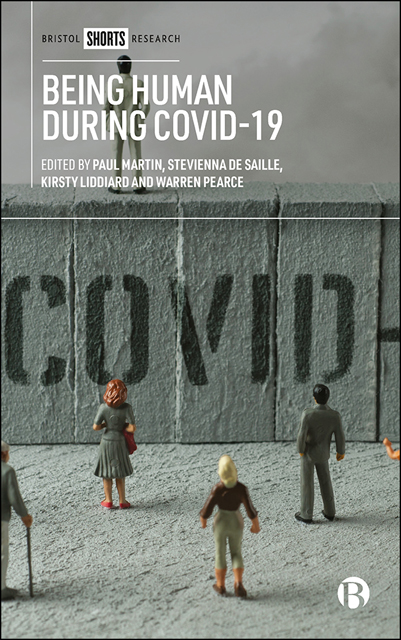eight - Science Advice for COVID-19 and Marginalized Communities in India
Published online by Cambridge University Press: 13 October 2022
Summary
Introduction
The relationship between modern science and the public is complex even in ‘normal’ times (Nowotny et al, 2013). In times of pandemic, when knowledge uncertainties magnify, and decisions need to be taken in extremely pressing situations, this relationship needs extra care, caution and nurturing. In the absence of such care, science advice might do more harm than good, and perhaps will end up creating multiple new vulnerabilities, marginalities and loss. The primary focus of this chapter is to engage with the relationship of science and its public. What kind of public did science-based advice imagine while providing health advisories to prevent and contain a COVID-19 outbreak in India? Who did it include and who got marginalized in the process?
The analysis draws theoretically from Mike Michael’s (2009) conception of Public-in-General (PiG) and Publicin-Particular (PiP), which are associated with and emerge in response to different versions of science. While PiGs are ignorant yet cooperative, they fit more closely to the official narratives and emancipatory purposes of science; PiPs are often regarded as interest-driven, emotional and disruptive (Michael, 2009).
Science advice for the pandemic and its ‘public’
The science advice to curb the spread of the pandemic in India was designed and disseminated along the lines of the traditional model of science communication. This deficit model relies on the idea that the source of all disagreements between state/science and citizen/public lies in the lack of proper information and knowledge (Sturgis and Allum, 2004). With the ‘right’ information, the public will behave in desired and predictable ways, reducing chances of misinformation and confusion-led chaos, enabling governmentality. Traditional science communication-led interactions with the public were focused on making the public aware and better informed.
In the COVID-19 case, the public was envisioned as Public-in-General and assumed to be completely ignorant, lacking scientific knowledge and understanding. Public health advisories were disseminated through multiple visual and verbal platforms to promote awareness and bridge the information deficit. Scientific institutions (Indian Council of Medical Research), government departments and ministries (Ministry of Health and Family Welfare, Department of Science and Technology) took the lead at the central level, while other state-based institutions (district level administrative bodies) were roped in to communicating the health advice at the local level.
- Type
- Chapter
- Information
- Being Human during COVID-19 , pp. 67 - 74Publisher: Bristol University PressPrint publication year: 2022



